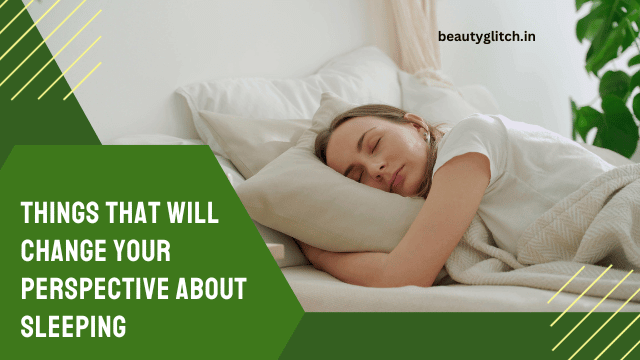There are many times when people forego a good night’s sleep to party, study, work, or binge-watch a favorite TV series. The problem is that sleep is essential for us to function in ways that you may not even know or realize. Recent studies from the National Sleep Foundation and Harvard Medical School have come up with interesting theories as to why it is vital for a human being to get a good night’s sleep. Also, other concepts such as brain fog, physical functioning, and physical fitness are all tied to sleep.
If you are cramming the night before an exam, how will you pass the exam if you are sleep deprived? If you forego a good night’s sleep to party until the wee hours of the day, how will you work the next day? Even not having the proper bedding or bed can affect your night’s sleep.
These are some things to think about when deciding how to plan out your day or week. The nice thing about sleep is that you don’t have to pass on partying, studying, working, or binge-watching—you just have to find a way to maintain a healthy balance between sleeping and not sleeping to ensure that you remain physically and mentally healthy and become the best version of you that you can be.
The Importance of Sleep
Throughout this article you will learn about a few sleep theories and how to make important choices in regard to sleep (sleep vs. friends, sleep vs. studying, sleep vs. work).
Some important factors to think about when you are looking at substituting sleep are the chemical reactions in your brain when you get a good night’s sleep or the lack of reactions when you choose to miss out on a few extra hours of sleep.
The hormones insulin, ghrelin, leptin, and cortisol are all affected when you sleep. When you do get enough sleep, insulin—a hormone that helps blood sugar levels in your body to function properly—is affected in a positive way; this means that you will crave processed food less and will make different choices when you choose to eat certain foods. Ghrelin and leptin work together; when you don’t get enough sleep, there is less production of leptin and more production of ghrelin. Ghrelin is the body’s hormone that lets you know it is time to eat. When you don’t get enough sleep, your body won’t produce enough leptin, which is the hormone that tells you to stop eating. This means you’ll end up feeling hungry more often and as a result, eat more than you should or need to.
Finally, cortisol is the hormone that helps break down muscle energy and is in charge of your stress levels. If you are feeling stressed out from being overworked and overtired from lack of sleep, your cortisol levels will sky rocket. When this happens, your muscle energy will begin to break down, which means you will feel physically weaker. A physical weakness can lead to all forms of ailments that could include physically injuring yourself more often, as well as coming down with more flu-like colds.
Theories of Sleep
Now that the hormone level talk is out of the way, let us move onto the different theories of sleep. Although there are many theories regarding sleep, only three will be discussed in this article. These theories are: the brain plasticity theory, the energy conservation theory, and the therapeutic theory.
The brain plasticity theory is one of the latest theories that provides an explanation about why our bodies need sleep. This theory refers to how sleep is correlated with the structure and organization of our brains. While this theory isn’t completely fleshed out, there are a few items that are understood—the connection to sleep has many implications when it comes to memory, brain development, and functionality.
The energy conservation theory is exactly how it sounds and is generally referred to when studying animals (and humans are animals too). Lions don’t have food readily available as humans do, and will rest in times right after eating to conserve their food stores. Now, as humans we know where our food is coming from and we get fed regularly. However, the difference between humans and animals is that when humans sleep, our metabolism slows by 10%. Both body temperature and caloric demand decreases.
Finally we have the restorative theory, which is based on the believe that sleep allows your body to restore itself of what it has lost while we were awake. This theory also explains the cognitive functions of the brain. For example, when you are awake, your brain produces a hormone called adenosine, which is a by-product of cell activities of the day; this hormone is believed to promote sleep. Therefore, when you are asleep, the brain clears out the extra adenosine that has been built up throughout the day.
The restorative theory is based on evidence found in animals who are deprived of sleep and who have decreased immune functioning and lose the ability to function physically. This deprivation leads to eventual death. The thought of animals dying for a sleep study is horrible; however, the findings show that the resting brain and body provide major restorative functions such as protein synthesis, hormone growth, tissue repair, and muscle repair.
Sleep Perspective
There are some other factors you should consider when debating over whether or not you should or shouldn’t get ample sleep. If you do get enough sleep at night, you will make better choices, your body will develop better metabolically, you will have the ability to think clearly, you will feel better and more focused, and you will have more energy. Having more energy can help you find the drive to get dressed for the day and feel good about your appearance and have better relationships with the people around you.
Conclusion
While we already knew that sleep is important, we now know that getting a good night’s sleep is good for your brain development, organization, metabolism, and has restorative properties. When you choose to get enough sleep at night, you are effectively promoting a healthier, happier version of you. You will snack less, eat more healthy foods, and your body will be able to break down the food you are eating quicker.
Sleep is not only important for outward appearance, but the complex functioning of your brain and your emotions depend on it as well.

